Supreme Court Wrestles with Hungarys Effort to End Holocaust Survivor Lawsuit
Sort by
Date
-

Supreme Court Rejects an Effort to Block States From Suing Oil Giants
The justices declined to hear unusual arguments from Republican-led states that sought to end lawsuits against energy companies over their role in global warming.The New York Times - 23h -
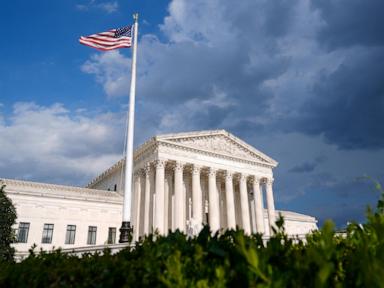
SCOTUS rejects Republican-led effort to halt climate lawsuits in Dem-led states
The Supreme Court has rejected a lawsuit from Republican attorneys general in 19 states aimed at blocking climate change suits against the oil and gas industry from Democratic-led statesABC News - 1d -
Supreme Court turns away bid to block state climate change lawsuits
A group of Republican-led states sought to block lawsuits brought by a group of Democratic-led states that seek to hold energy companies accountable for climate change.CBS News - 1d -

Blue State Lawsuits Against Oil Companies Can Move Forward
Blue states are suing Exxon Mobil and other oil companies. The U.S. Supreme Court rejected a bid by red states to block the suits.Inc. - 1d -
Supreme Court takes up case over Colorado "conversion therapy" ban for minors
The dispute will be heard by the Supreme Court in its next term, which begins in October.CBS News - 1d -

Supreme Court takes up Colorado conversion therapy case
The Supreme Court granted a Colorado therapist’s request to review her challenge to a state law banning mental health care providers from engaging minors in conversion therapy, a discredited ...The Hill - 1d -
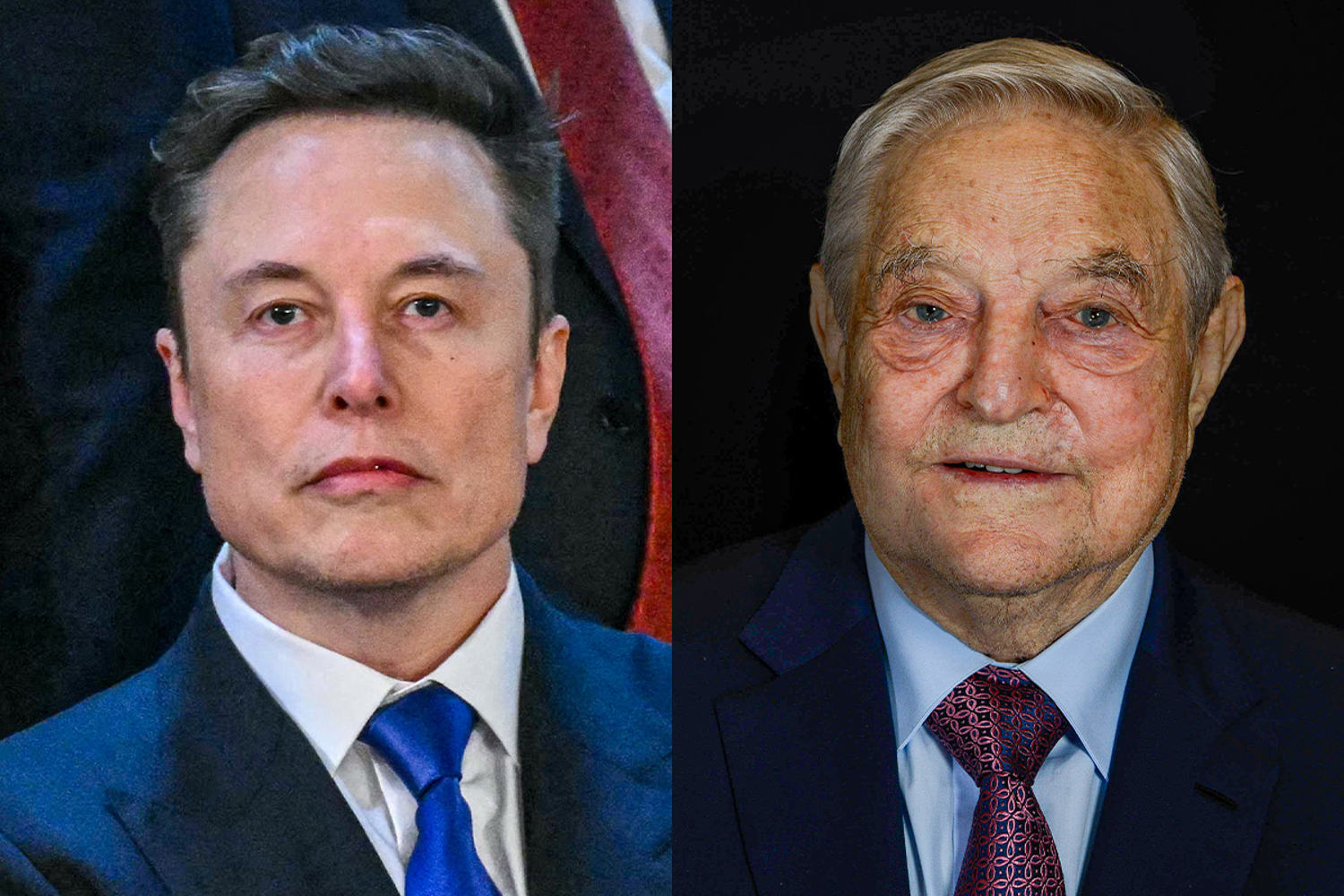
In Wisconsin's Supreme Court race, both sides take aim at the other's billionaire backers
The Wisconsin Supreme Court contest is shaping up to be a battle of billionaires, with each side in the race casting the other’s most prominent donors as boogeymen.NBC News - 3d -
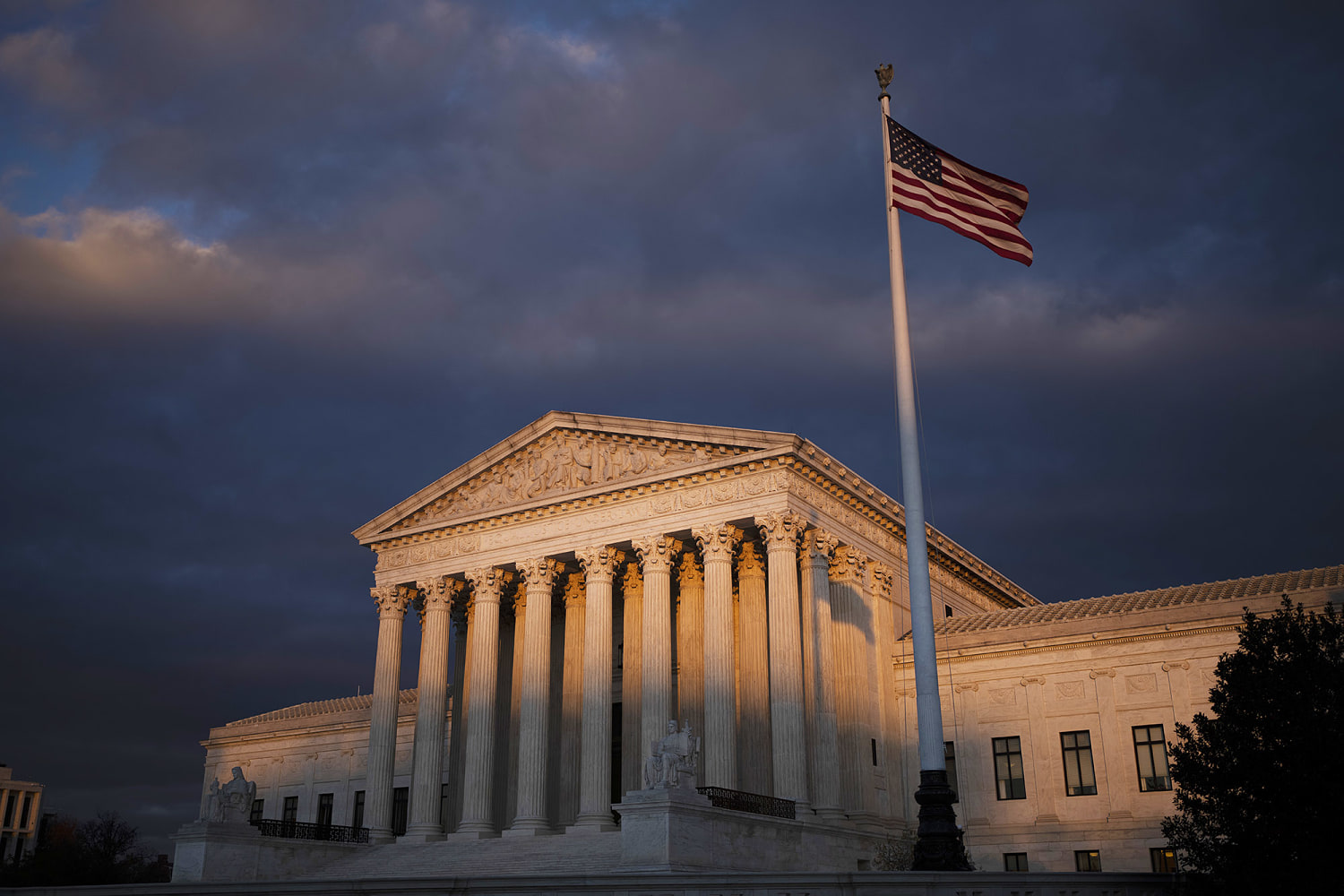
Supreme Court takes up free speech challenge to conversion therapy bans aimed at LGBTQ youth
The Supreme Court agreed to hear a challenge to law in Colorado that bans “conversion therapy” aimed at teens questioning their sexual orientation or gender identity.NBC News - 1d -
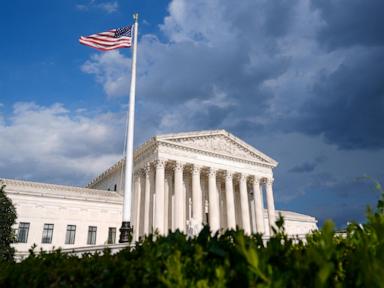
Supreme Court to take up bans on conversion therapy for LGBTQ+ kids, in Colorado case
The Supreme Court has agreed to decide whether state and local governments can enforce laws banning conversion therapy for LGBTQ+ children, in a Colorado caseABC News - 1d -

A Supreme Court Case Threatens the Church-State Divide
The case invites further fragmentation of public education.The New York Times - 2d -

Aftershocks of Supreme Court’s Immunity Ruling Echo in New Trump Cases
The real legacy of the case, scholars say, is not its protection of former presidents from prosecution but its expansive understanding of presidential power.The New York Times - 1d -

Supreme Court to Hear Challenge to Law Banning Conversion Therapy
Colorado, like more than 20 other states, bars licensed therapists from trying to change the sexual orientation or gender identity of minors in their care.The New York Times - 1d -
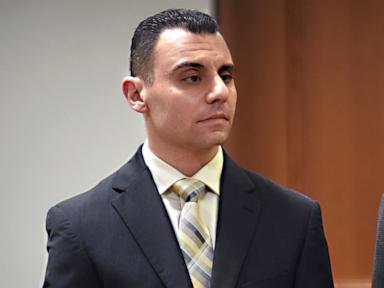
Court upholds murder conviction in Fitbit murder case despite missteps by prosecutor
The Connecticut Supreme Court has upheld the murder conviction of a man found guilty of killing his wife in 2015, in a case that drew widespread attention because of evidence from the victim's ...ABC News - 1d -

Wisconsin Democrats look to harness anger with Musk in court race
Wisconsin Democrats are launching a full-court press against Elon Musk as they look to use angry voter sentiment against him as a tool to turn out voters in the high-stakes Wisconsin Supreme Court ...The Hill - 1d -

DOGE's secrecy to be tested in court with sworn testimony, depositions
Over the next week, several judges have ordered top Trump administration officials to testify about efforts to reduce the size of the federal government.ABC News - 3d -

Judge halts effort to deport Columbia protest leader, sets Wednesday hearing
A federal judge on Monday scheduled a Wednesday court hearing for Mahmoud Khalil, a recent Columbia University graduate who was arrested by U.S. Immigration and Customs Enforcement (ICE), ...The Hill - 21h -

Orbán says Hungary will poll citizens on Ukraine's EU membership
Hungarian Prime Minister Viktor Orbán says Hungary will poll its citizens on Ukraine’s potential future membership in the European UnionABC News - 4d -

Hungary's leader orders price controls on basic foods as inflation spikes
Hungary’s government is limiting the profit margin for grocers on a number of basic food items in response to growing inflation hitting consumers in the Central European countryABC News - 7h -

Rodrigo Duterte's downfall marks dramatic end to Philippines power struggle
The ex-president is on his way to the International Criminal Court following his arrest in Manila.BBC News - 2h -

A cacti-smuggling case with a prickly end: the novel way courts are making poachers pay
Two Italian cacti smugglers have been fined for illegally trading plants from Chile – and for the cost of restoring the environment. Conservationists hope more cases will follow. Chile’s Atacama ...The Guardian - 1d -

Party drug MDMA may have protected survivors of Nova attack from trauma, study suggests
Neuroscientists in Israel find signs that the drug helped festival survivors in the attack and the aftermath.BBC News - 3d -

Eighty years since the Tokyo firebombing, survivors are still awaiting recognition
More people were killed in the 1945 attack than the atomic bombing of Nagasaki a few months later, but there is no national memorial, accurate death toll or compensation for survivors. . Not even ...The Guardian - 1d -

‘Nothing like this in American history’: the crisis of Trump’s assault on the rule of law
Even if the supreme court were to resist the president’s onslaught, it has little means to enforce its decisions. When the chief justice of the US supreme court , John Roberts, delivered his ...The Guardian - 2d -
On a Bench in Hungary, a Promise Leads to a Proposal
As teenagers, Jessye Marquez and Thomas Wood, committed to each other after competing in a Filipino martial arts tournament, even though they lived on opposite sides of the Atlantic.The New York Times - 4d -
Paramount says Trump's CBS '60 Minutes' lawsuit seeks to 'punish' network
Paramount on Thursday asked a federal judge in Texas to dismiss the $20-billion lawsuit. The media company separately has agreed to have a mediator look at the case.Los Angeles Times - 4d -
CBS hits back at FCC over probe into '60 Minutes' edits
CBS argued that the news distortion complaint should be dismissed, saying the U.S. Supreme Court has never 'recognized a sweeping right by the government to second guess editorial decision-making.'Los Angeles Times - 1d -

When Is Daylight Saving Time?
The twice-yearly ritual has roots in cost-cutting strategies of the late 19th century. A recent effort to end it has stalled in Congress.The New York Times - Mar. 3 -

Lawyer Appointed in Adams Case Says Charges Should Be Dropped
Paul D. Clement also said a judge should not allow the Trump administration to use the court’s authority to compel Mr. Adams’s support in the White House’s mass deportation efforts.The New York Times - 3d -

Judge to decide if Menendez brothers' resentencing moves forward
The Los Angeles district attorney will withdraw his predecessor's recommendation to reduce the prison sentences of Lyle and Erik Menendez. The fate of the brothers now rests in the hands of the ...NBC News - 1d -

Judge denies Pulitzer board’s request to pause Trump lawsuit during presidency
A Florida judge Monday denied the Pulitzer Prize Board’s request to pause President Trump’s defamation lawsuit while he is in the White House, an argument Trump’s lawyers themselves have made in ...The Hill - 5h -
What Ukraine's asking for in meetings with U.S. about war with Russia
Officials from the U.S. and Ukraine are holding talks in Saudi Arabia on Tuesday in an effort to end Russia's war against the Ukrainians. Michael Bociurkiw, senior fellow at the Atlantic Council's ...CBS News - 3h -

MLB players' union, Bad Bunny agency agree to dismiss lawsuit over discipline
Bad Bunny’s sports representation firm and the Major League Baseball Players Association have filed an agreement to dismiss the union’s lawsuit over penalties imposed for making improper inducementsABC News - 4d -

Trump defends Amy Coney Barrett: ‘She’s a very good woman’
President Trump defended Supreme Court Justice Amy Coney Barrett, calling her a “very good woman” even as she breaks with conservatives on some issues. “She’s a very good woman. She’s very smart, ...The Hill - 1d -
Iran's Supreme Leader Ayatollah Ali Khamenei rejects talks with the U.S.
Iran's Supreme Leader Ayatollah Ali Khamenei said talks between the two countries would be aimed at imposing restrictions on Iranian missile range and its influence in the region.CBS News - 3d -

Panama Will Release Migrants From Detention Camp, Challenging Trump’s Deportation Efforts
More than 100 people deported by the United States have been held in a remote camp for weeks. Their release could pose a challenge to President Trump’s deportation efforts.The New York Times - 3d -

Courts grapple with 'King' Trump
The White House sees few, if any, limits on President Trump's executive powers in his second term, but the federal court system is much less sure. Trump's mass firings and dismantling of various ...The Hill - 2d -

The Roberts court is America's last safeguard against Trump’s tyranny
How will history judge the nation's highest court?The Hill - 1d -

Iran’s supreme leader rails against Trump’s ‘bullying’ military threat
Ayatollah Khamenei says US demand to reopen talks on Iran’s nuclear programme is aimed at domination. Iran’s supreme leader, Ayatollah Ali Khamenei, has criticised what he described as bullying ...The Guardian - 3d -
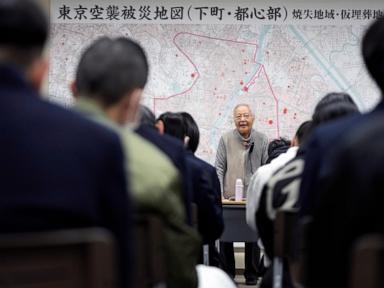
Survivors of Tokyo bombing 80 years ago want compensation
Japan is remembering the 105,000 people killed in a single night, 80 years ago Monday, in the U.S. firebombing of the Japanese capitalABC News - 1d -

Jessie Mahaffey, Survivor of Pearl Harbor Attack, Dies at 102
He was cleaning the deck of the U.S.S. Oklahoma when it capsized under Japanese torpedo fire. Less than a year later, he survived the sinking of another Navy ship in the Pacific.The New York Times - 20h